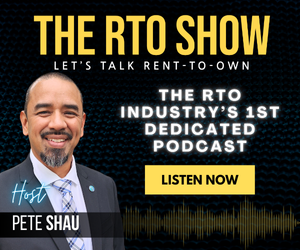Cash prices for RTO products remain an issue for dealers. Last spring an RTO company settled a lawsuit over cash price calculations and caps on total RTO pricing under the California RTO statute for $13 million. The California statute, like the RTO statutes in five other states (Hawaii, Maine, New York, West Virginia, and Vermont) caps cash prices at a multiple of the dealer’s wholesale cost. The multiple varies according to product category. The specific dispute in the California lawsuit was over how the company was calculating its shipping costs, which the statute allows to be included in the wholesale cost calculation. Specifically, California law defines “Lessor’s Cost” as “the documented actual cost, including actual freight charges, of the rental property, to the lessor from a wholesaler, distributor, supplier, or manufacturer and net of any discounts, rebates, or incentives (CA Bus. & Prof. Code, section 1812.622(k)).”
Cash prices for RTO dealers are an issue because dealers historically have made so few cash sales of new products. They may move used products for heavily discounted cash prices, but new product is most often rented. Dealers are not trying to meet or beat retail cash prices because that is not, fundamentally, the business they are in.
Dealers disclose cash prices to help customers shop more meaningfully and also because the RTO statutes in 37 states require a cash price or its equivalent in the rental agreement or on a price tag or both. This is not the first time issues over calculating and disclosing cash prices has been discussed in these pages. See Winn, “The Invisible Hand of Government: Fixing Prices in the Rental Industry,” Progressive Rentals (RTOHQ: The Magazine, March-April 2002, pp. 29-32); Winn, “The Price Cap Trap in Rent-to-Own,” Progressive Rentals (RTOHQ: The Magazine, April-May 2007, pp. 30-33). However, the issue of how dealers are deriving and disclosing cash prices continues to evolve as must the reporting on it.
Most recently, some dealers have been advertising a “cash price” and then right alongside that price appears a “discount price” or sometimes, a “cash and carry price.” The second is predictably lower than the first. Calculations relating to the total RTO Price (months or weeks necessary for ownership times the rental rate) are working off of the stated “cash price,” thus yielding a higher RTO total price. The problem with this methodology is that the stated “cash price” is not a real one since nobody ever actually pays that price and walks off with the product. All cash-paying customers, whether many or few, are all paying the “discount price.” That is what it is there for. The stated “cash price” is an artificial one and neither fits the definition of “cash price” in any of the RTO statutes nor common sense.
The RTO statutes, by and large, define “cash price” as the price at which the lessor sells or would sell the rental property to the lessee for cash on the date of the RTO agreement.
There are slight variations here and there to that definition. Some states want the tax included; others insist that the tax be excluded. A couple of states impose a duty of good faith in setting cash price; a few add the language, “in the ordinary course of business.”
Some states have different language for cash price. West Virginia calls the amount the “retail value.” Georgia calls it “the estimated fair market value of the leased property.” Both states require dealers to use the precise language in the statute. Whatever it is called, it has to be the real cash price, not some pretend cash price at which no transaction has ever occurred.
Now a dealer might have a real advertised cash price of, say $999.00, and a customer, while shopping might offer the store $900.00 cash. If the store takes that deal, that is a one-time discount negotiated with that particular customer, and, assuming that there are actual sales at $999.00, or in any case, just the one sale at $900.00, that lone transaction that the customer negotiated does not change the dealer’s cash price of $999.00 for disclosure purposes. On the other hand, if everybody who walks in the store is offered the $900.00 price, then that is the cash price, the inflated price in the advertising be damned.
Cash prices matter in RTO, even though they obviously matter much, much more in retail. Dealers want to pay attention to how they are calculating and disclosing that amount and stay on the safe side of the law.
Ed Winn III serves as APRO General Counsel. For legal advice, members in good standing can email legal@rtohq.org.










